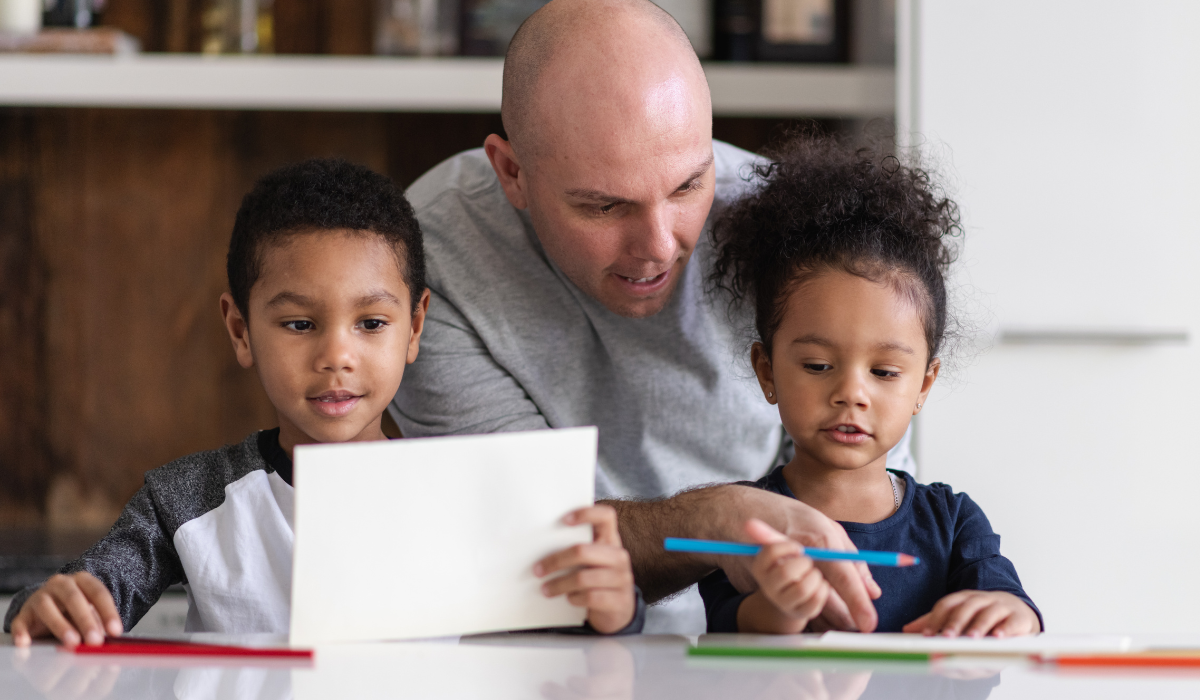This article was originally published by Heather Carson at The Mises Institute.
Since 2020, the number of families participating in homeschooling has increased significantly, and with it, discussions about regulations. Currently, regulations of homeschoolers are a state-by-state phenomenon, with Pennsylvania and New York among the states with the most regulations and Missouri, Texas, and Oklahoma with the least. Examples of regulations include requiring parents to submit a letter of intent to homeschool prior to removing their children from the classroom, having teaching qualifications, teaching specific subjects, having evidence of vaccinations, schooling each child for a certain number of hours, and more.
One of the many reasons for the push for regulations has to do with the desire to protect children from isolation, educational neglect, and other more violent forms of abuse. A less dramatic reason exists in the belief that differences in requirements from state to state lead to uneven educational experiences within the homeschool community. Lack of oversight is often blamed for these discrepancies, and the solution almost always involves using the state apparatus to bring about accountability.
I think regulation of homeschooling by the state is a mistake and will serve to derail what has made homeschooling such a success in the first place: the amazing freedom, diversity, and individual-centered education that reflects each family’s personal beliefs as well as each child’s gifts.
Homeschooling as a whole has been a wild success. Since its humble beginnings in the 1970s with between ten to fifteen thousand children being homeschooled to now with more than three million as of 2022, homeschooling has seen incredible growth. Along with the growth in numbers, there has been a growth in resources, many of them free. A quick search online for a homeschooling curriculum will produce dozens of websites offering free support, worksheets, reading materials, and more. It has never been easier to homeschool.
There has also been achievement in the homeschool community. Homeschoolers outperform their public schooled counterparts by between 15–30 percent on standardized tests. Homeschoolers as a whole are more socially and emotionally healthy and are more engaged in their communities. However, despite these amazing results, growth in the homeschooling movement has drawn the attention of the governing bodies as well as those who believe all education should be regulated by the state, or at least by someone other than the parents. The concern is that without state accountability, some homeschooled children will fall through the cracks.
This completely ignores the fact that state education is itself unable to prevent its own from falling through the cracks. In fact, there are so many cracks, it’s amazing that it’s all still standing. In my own state of Missouri in 2022, only 28 percent of eighth graders tested in reading were at or above proficiency. Overall for the United States, 19 percent of all high school graduates cannot read. If governments cannot fill their own cracks, how can they be expected to prevent children who are homeschooled from slipping through the cracks?
Educational neglect aside, what about the more dramatic cases of abuse and neglect? I was personally involved with a case in which the children, who were homeschooled, were being relentlessly controlled and physically abused by their parents to the point of exasperation, causing one child to run away. In another case, the family only used the Bible as their source of educational material, leaving the children unprepared to meet the demands of modern society. Do homeschooling children in these types of situations need extra protections in place to protect them from these abuses? Is the government the best entity to provide protection?
Most child advocates contend that children in public school, who are with other nonrelated adults, are in a better position for adults to notice the abuse and step in to protect the child. If a child is stuck at home only with parents, abuse can occur with very little accountability. Organizations such as The Coalition for Responsible Homeschooling, whose mission is to advocate for a child’s right to an education as well as a “safe, supportive home environment affirmed and protected by laws, stakeholders, and society as a whole,” look to the government to make and enforce laws protecting children. The Coalition for Responsible Homeschooling has documented hundreds of cases of horrendous abuse, neglect, and even fatalities perpetrated by homeschooling parents. As I read through many of these documented cases, one fact stood out: the government officers designated to investigate abuse were, in fact, already involved, and the abuse—and even death in some cases—was not prevented.
If accountability of parents via the government through the schools were the best way to help kids, it would still not prevent the majority of abuse cases since in the general population of all children in the United States, more than half of the cases of maltreatment involved preschool-aged children or children not under the care of the public school. Regulating homeschoolers because abuse happens isn’t going to help much when most of the abuse cases in the general public—which includes children who would attend public or private schools or be homeschooled—occur before a child is even of school age. And of course, abuse by teachers is rarely discussed by the public. Who’s holding the teachers accountable?
In all the aforementioned situations in which the moral responsibility of parents to prepare their children for adulthood is being abdicated through educational neglect or physical and emotional abuse, the solution most often proposed is regulation by the government. There are several problems with this approach. Regulation by the government in both education and abuse cases will inevitably reflect the interests of the government. The very definition of what constitutes an education and what defines abuse may shift depending on who’s able to have the most influence. So, for example, when a driving force behind state regulation is education equality, in its various forms, then inequality can be seen as abuse.
The goal of some to use the law to coerce others into educating the way they see fit violates the parents’ right to raise their children in a way that is consistent with their own values and beliefs. Those who police the parents get to define the abuse. It is the same with education. Educational standards have been an ever-shifting phenomenon deeply affected by the latest trends. Since the early 1960s, education in America has been riding wave after wave of educational innovations designed to improve the teaching of reading, writing, and arithmetic. For example, Reginald Damerell in his book Education’s Smoking Gun pointed out that “between 1959 and 1976, federal and state governments spent between $2.13 billion for media equipment and materials under the National Education Defense Act.” Media was supposed to enhance the learning experience for students even back then. Now, roughly 63 percent of classrooms have some kind of technology as a means of educating students. This shift from learning the educational basics to a focus on media of various kinds has had a negative effect on students’ achievement. Resources are pulled away from the three R’s and into training administrators, teachers, and students how to use the latest tech. It’s an endless cycle that does not produce good results and wastes tax money.
Furthermore, where there is government intervention, there is also a disruption of community cohesiveness. The homeschooling community is known for its amazing ability to spontaneously meet the needs of its members. Long before learning pods, there were homeschool co-ops. As a fifteen-year homeschool veteran, I can attest to how amazingly supportive, informed, motivated, and helpful most of the members of my own homeschooling community really are. We are tight-knit, and accountability is a natural outcome of this cohesion.
In his book The Prophets of Doom, Neema Parvini, in his discussion of Peter Turchin, talks about the idea of asabiya. Asabiya is defined as collective solidarity and is demonstrated when a “seemingly marginal group who live on the outer fringes of a vast empire who somehow, despite being outnumbered and technologically outclassed, end up taking over vast swatches of land previously held by a seemingly superior ‘civilization’ or empire.” The tendency, he explains, is a decrease in asabiya when an empire is established and things are going well. Asabiya increases at the margins where there is adversity. When there is government intervention and integration, there is low asabiya. The quiet and steady secession of individual families and groups of families that now comprises the homeschool movement are a marginal group demonstrating asabiya in that there is, despite differing educational approaches and religious beliefs, a deep sense of collective solidarity. We are all united in our drive to educate our children away from the clutches of the government. Education by the government is viewed as an adversity.
If the government is allowed to further intervene and more and more regulations are imposed on homeschoolers, group solidarity, and cohesiveness will decline, and the homeschool movement will simply be absorbed in the massive educational apparatus. The elite groups whose pressure helps drive government intervention will not be able to hold themselves back—they will inevitably overstep into the parents’ right to raise their children, including educating them as these groups see fit. The kind of diversity present in the homeschooling community is simply not allowed when the organizing force is a centralized entity. True freedom and diversity have always been hated by the government.
Regulation of homeschoolers is a bad idea all around. Not only will it not provide the kind of protection from educational, physical, and emotional abuse the ones pushing for it hope, it will become a breeding ground for other abuses perpetrated by those who control the government as well as the government itself. All forms of abuse of children are a horrible reality in our society. Regulating the homeschooling community will not make it go away. Community cohesiveness and the natural accountability that develops within a community that reflects its beliefs need further examination as an alternative to government intervention if we want to preserve the amazing success of the homeschooling movement.











0 Comments